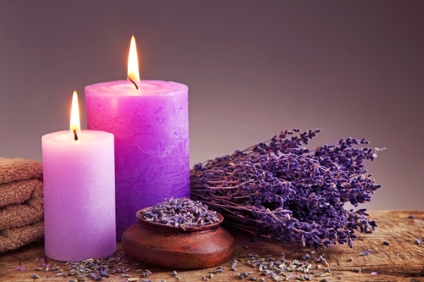Meditation and Heroin Addiction Recovery

By Matt Abbasfard
My journey in recovery from alcohol and drug abuse has been by no means a straight line. This is my third attempt to get clean, and there were times in my life when I never thought that recovery was possible. I’ve been to individual therapy, residential heroin addiction treatment programs (9 times), outpatient groups, and 12-step groups. You name it, and I’ve tried it.
I’ve participated in a range of different services with varying levels of commitment, sometimes enthusiastically and sometimes in order to avoid yet another trip to the county jail. In the past, each attempt to get clean ended in failure. The consequences would pile up, and the pain would become so great that I would eventually tuck my tail between my legs and make a call for help.
This process continued for a decade, and it wasn’t until my family turned their back on me, and I was in front of another judge that I was finally able to make a change.
As a militant atheist and a free-thinking skeptic, 12-step groups used to be a hard pill for me to swallow. I wasn’t the only agnostic or atheist in the rooms, but my reasoning was different than many of theirs. Many of the people that had an issue with God were coming to meetings looking for the acceptance of a God that they felt like they’d let down. That wasn’t my story. I just flat out didn’t believe.
Their talk of God and a “Higher Power” would make me so angry that I would have to leave, and stopped going to meetings and went AWOL from my heroin addiction treatment program more than once. I could see the program working for people all around me, but I didn’t think that the 12 Steps and God were my solution.
Changing My Perspective
It wasn’t until much later in my sobriety that I began to delve into meditation. My sponsor and heroin addiction treatment program counselor suggested meditation as an alternative to prayer, but it just sounded hokey and pointless. I couldn’t imagine myself sitting quietly and focusing my thoughts, and I felt pretentious and inauthentic when I tried.
Hearing Sam Harris endorse meditation intrigued me, and helped to change my perspective. A neuroscientist, atheist author, and an incredibly intelligent individual, Sam Harris is one who’s Ted Talks I’ve frequented and books I’ve devoured. His explanation of what meditation did for him helped to change my perspective, and started chipping away at the sense of intellectual superiority that blocked me from meditating.
I stopped weighing the pros and cons of meditation, and just dove in. I didn’t hit the ground running, but I put the same effort into meditation as I did into my sobriety. I knew that I had to expand my recovery now that I had left my heroin addiction treatment program, and the fear of relapse helped me overcome my skepticism.
I started meditating every day, but my thoughts would wander and I’d catch myself thinking about work, or my plans for the weekend. I’m also a perfectionist, and I viewed my wandering thoughts as failure, which frustrated me even more. Friends explained that this was completely normal, and that no amount of meditation would stop my thoughts from wandering.
I accepted that this was an important piece of my heroin addiction treatment that would take practice, and that the goal wasn’t to be perfect, but just to improve. After doing this for a few months I noticed that I felt calmer and more at peace. It wasn’t a drastic change, but I saw that I wasn’t as wound up as I usually was, and could handle stressful situations without feeling overwhelmed.
When things would become stressful, I would take a moment to sit quietly and focus on my breathing. It wasn’t always a magic solution to my problems, but it helped to center and focus me, and made me aware that I needed to calm down.
My Current Experience with Meditation
My life today is very different than it was when I was using heroin. I’m a full time student at a university, I work part time, and I have bills and responsibilities that I’m expected to fulfill. The days of bouncing between heroin addiction treatment programs and dirty motels are over. Life is in full swing, and I need a therapeutic outlet in order to deal with the stress and worry.
Life can be overwhelming sometimes, and my mind races between tasks and responsibilities and tells me that I’m going to fail. When my thoughts start to overwhelm me, I’ll sit quietly for a time and just focus on my breathing. This quiets my racing thoughts and helps me relax and focus. I sit with my hands on my knees and breathe slowly, thinking of nothing but my breathing and staying in the moment.
When work becomes overwhelming I’ll excuse myself to sit in my car and meditate, and when I’m frustrated with homework, I can step away from the computer and breathe deeply until my thoughts begin to slow down. I also meditate in the evenings before I go to bed, and it helps me to process my day, and remove any fearful or worrisome thoughts.
My girlfriend started meditating around the same time I did, and meditating together has strengthened our relationship, and helped us to connect on a whole new level. It’s grown past a tool I utilize in my heroin addiction treatment, and has become an integral tool I use for everything.
I am by no means the poster child for meditation, but I feel that some of the hurdles I’ve faced are accurate representations of most people’s experience with meditation. I’m just a regular guy who enjoys meditation, and can see it improving my life.
For me, it isn’t about being a guru or meditating for hours on end, it’s about bringing calm and peace to my busy, and oftentimes chaotic life. I’m so glad that I was able to overcome some the obstacles that stood between me and my sense of calm, and I strongly recommend meditation to anyone looking to calm their mind, no matter how skeptical they may be.
———————–
Matt Abbasfard is a recovering addict and alcoholic, and has been clean and sober for 3 years. He is in his third year at California State University, Fullerton, and majoring in psychology. Matt works in online marketing for a range of local businesses.
If you enjoyed this article, sign up below for the Blooming Lotus Newsletter and we’ll notify you when the next article is released:





0 Comments